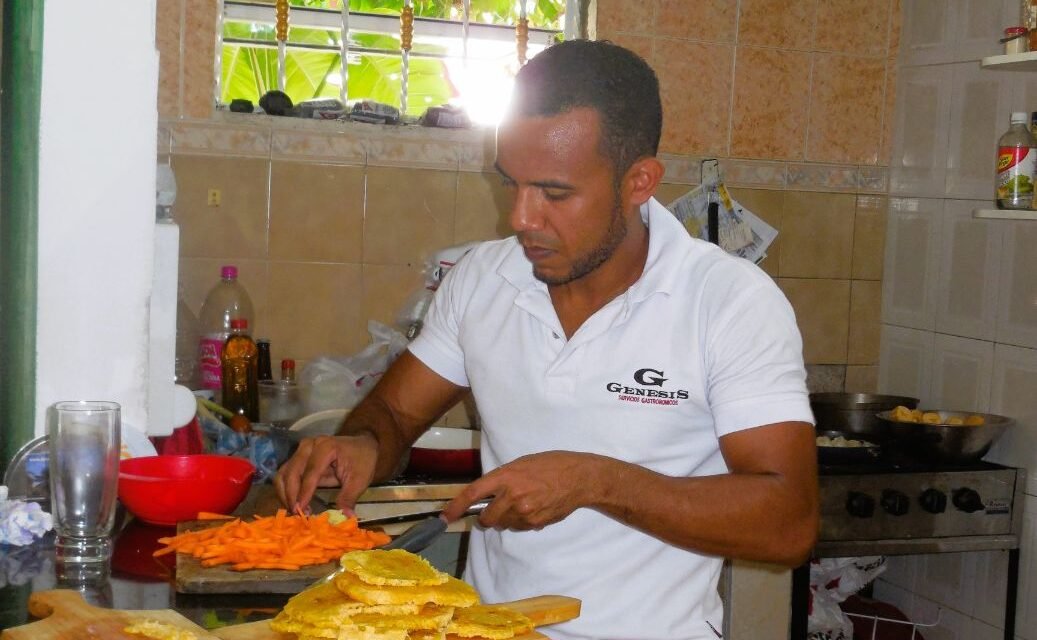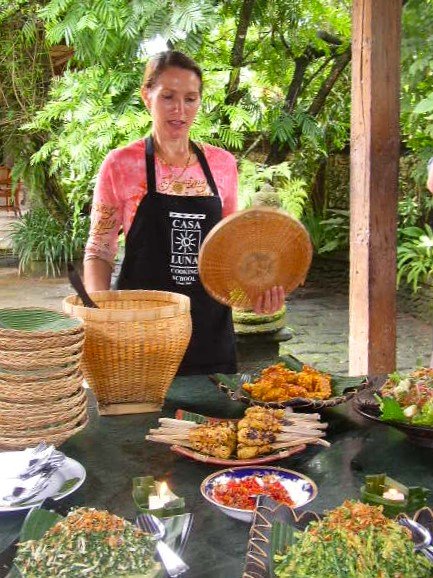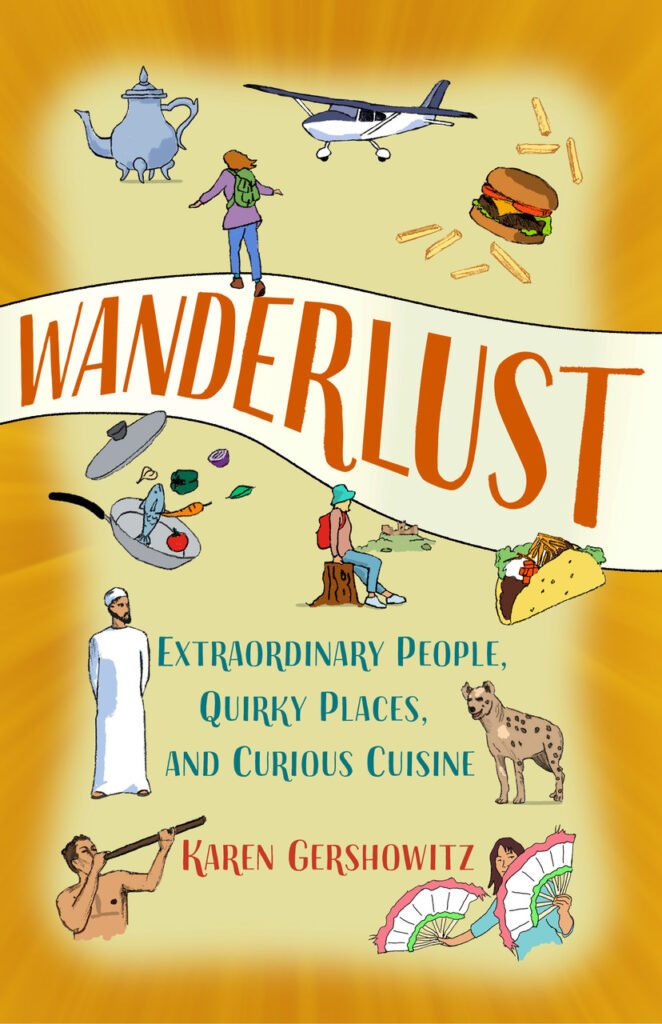
Cooking Your Way Around the Globe

If you’re like me, one of the most important elements of every travel experience is food. Whether eating in an elegant restaurant or a simple café or sampling street food, meals are a sure way to connect with the local population. A flaky croissant, spicy bibimbap, or savory pad Thai — all are both delicious, and emblematic of local culture.
But why limit the food experience to eating? After sampling a country’s cuisine, you can take the experience much farther by learning how to prepare it. This is something I enjoy immensely when traveling. While I have taken cooking classes near my home, learning how to cook in the dish’s country of origin is far more satisfying.
Over the years, I’ve taken cooking classes ranging from an afternoon learning to prepare churros to a full week immersion into Tuscan cuisine. Some classes were in established, sophisticated cooking schools, others were outdoors under the trees and a few were held in the chef’s home kitchen. Regardless of the setting, taking a cooking class is fun, memorable and suitable for cooks of all abilities. I always bring back more than just recipes. Cooking classes have taught me new ingredients, preparations, and combinations that expanded my knowledge and made me a more daring cook. They’ve also been a wonderful way to connect with people, both travelers and locals.

Knowledgeable instructors also take the experience far beyond cooking. Many of the cooking classes I’ve taken have started with a walk through the local market with the chef / instructor. Together, we shopped for the meals we were about to prepare. The instructors point out local ingredients and explain what to look for and how to use them. They often buy foods that students can sample on the spot. This has been all the more delightful since, like almost every foodie, I love to spend time in local markets. But on my own, there are often fruits, vegetables and prepared foods I can’t identify. Though I ask the seller about them, the language barrier often prevents me from truly understanding how a spice, fruit or vegetable is used.
While in Bali, a cooking instructor taught me how to spot counterfeit food items, such as fake saffron made from dyed corn silk. In Merida, Mexico, they introduced me to chocolate preparation and the unique qualities of the many chocolate disks on sale. In Tokyo, the teacher taught us proper dining etiquette, including slurping while eating soup. She also explained that we should only use the wet towel traditionally brought before the meal for our hands, never our face.
Finding a cooking class is pretty straightforward….
If this whets your appetite, here are several things you should consider when choosing a cooking class:
Hands off, or hands dirty?
Are you more interested in watching food being prepared or do you want to roll up your sleeves and get your hands dirty? I’ve participated in both kinds of classes and I strongly prefer doing the cooking. The amount of involvement can vary widely. In Seoul, South Korea, each student had their own cooking station, and we each prepared every dish. We were sous chefs in Cartagena, Columbia, preparing the ingredients, but not cooking them. In Lucca, Italy, the cooking was a communal effort, lots of hands on, but there were so many dishes it was impossible to work on all of them. We were, however, in close proximity to one another, so we could observe what everyone else was doing. And for certain techniques, like rolling gnocchi, we all had the opportunity to form the shapes so we could feel the consistency of the dough.
Classic, or quirky?
Do you want a more classic, professional cooking school, or a less conventional, quirkier experience? In Chang Mai, Thailand, they set up individual stations in the chef’s backyard under the trees. In New Orleans, they held class in a professional kitchen with gleaming cooktops and high-end utensils.
Just cook, or cultural experience?
Do you want to focus exclusively on cooking or are you interested in diving into the local culture and learning more about it through a culinary
Large class or small?
How big or small of a group do you want to cook with? In Sicily, Italy, a friend and I had a private class. That meant lots of attention from the instructor and we were completely immersed in every step of the preparation of pasta, vegetables and tiramisu. In Bali, there were twelve people, divided into four groups. Each group had its own cooking table and cookstove and focused on two dishes. That meant we didn’t see the preparation of six of the dishes on the menu.
In-the-kitchen, or out-and-about?
Do you want to stay in the kitchen or go on field trips to food-related destinations? In Lucca, Italy, we saw the making of “slow food” cheese and ricotta and had tastings of dishes made from ancient Roman recipes.
Restrictions and allergies?
Do you have allergies or food restrictions? Can they adjust the menu to accommodate them? I’m wildly allergic to shellfish. One of my first questions is, “Do any of the foods we will be preparing include shellfish?” This has never been a problem, but several times the menu needed to be adjusted. If you are lactose intolerant, have gluten allergies or other food restrictions, contact the school before you sign up.
Perhaps the best part of any cooking class is that at the end you get to eat what you have prepared. The food is invariably delicious, though perhaps not as picture-perfect as what the chef has prepared. And by working with the other students, I’ve made friends with people from around the world who share my love of cooking and food. The joy of creating and sharing a meal is truly universal.



































